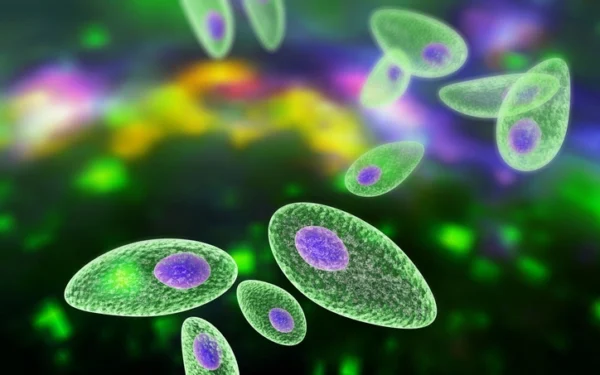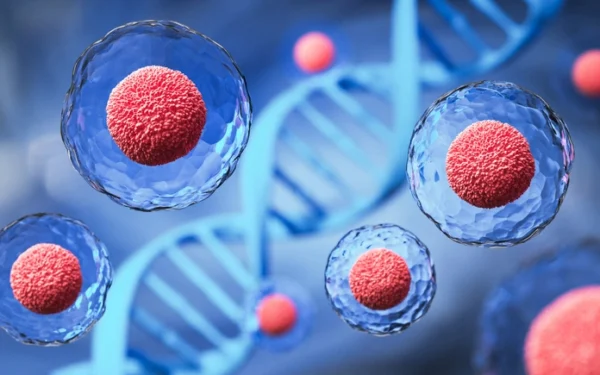What Does Epigenetics Mean?
There are quite a few definitions of epigenetics, but in its simplest form it is the study of inherited characteristics or changes in the way a cell works that aren’t due to a change in the DNA sequence of that cell. These changes are not influenced by cell division but significantly affect gene expression.
Or to put it another way, “…epigenetics refers to both heritable changes in gene activity and expression (in the progeny of cells or of individuals) and also stable, long-term alterations in the transcriptional potential of a cell that are not necessarily heritable.”1
It has been proposed that epigenetic alterations may arise from environmental factors (as indicated in the Överkalix study), while others believe they may be part of normal development. Numerous epigenetic processes, including methylation, acetylation, phosphorylation, ubiquitylation, and sumoylation, have been identified, and ongoing research suggests the likelihood of discovering additional mechanisms and factors.
The reason why epigenetics is such an important area of study is that while epigenetic processes are a vital part of the functioning of many organisms, any deviations from their normal course can affect an individual’s phenotype and potentially lead to significant adverse health effects.
How Is DNA Influenced By Epigenetics?
There are a number of epigenetic factors that can affect the functioning of our genome and cell biology. As explained above, some of these factors can be inherited and some can come from external influences. Here’s the main ways that cells can be affected by epigenetic processes:
Epigenetic Imprinting
Epigenetic imprinting is the modification of an offspring’s genes in a parent-specific manner, resulting in a distinct pattern of gene expression based on the parent of origin. In other words, a child doesn’t get a copy of both genes from its parents, with one of the genes being ‘imprinted’ – i.e. turned off (also called gene silencing). This regulation of gene activity occurs during development and beyond, holding significant implications for various biological processes.
Genomic imprinting, first identified in corn in 1910 and confirmed in mammals in 1991, involves the silencing of one allele in a gene pair. Imprinting becomes problematic if the expressed allele is damaged or contains a variant that increases the organism’s susceptibility to microbes, toxic agents, or other harmful substances.
Epigenetic Mechanisms
Epigenetic regulation occurs on multiple levels and can include DNA methylation, histone modifications, chromatin remodeling, and modulation of noncoding RNA (ncRNA). This fundamental process is integral to crucial biological functions such as cell differentiation, replication, and adhesion.
One of the most recognized epigenetic processes is DNA methylation, involving the addition or removal of a methyl group (CH3), primarily in regions where cytosine bases occur consecutively. DNA methylation’s association with human cancer dates back to 1983 and has since been linked to numerous other illnesses and health conditions.
Another well-researched area is the chromatin modification. Chromatin, a complex of proteins (histones) and DNA tightly bundled to fit into the nucleus, can undergo modification by substances such as acetyl groups (in a process called acetylation), enzymes, and specific forms of RNA like microRNAs and small interfering RNAs. Modifications in chromatin structure can influence gene expression, with tightly folded chromatin tending to be inactive or not expressed, while more open chromatin is functional or expressed.
Infections
Germs have the ability to induce epigenetic changes that compromise your immune system, enhancing the survival of the infecting microorganism. An example is Mycobacterium tuberculosis, the causative agent of tuberculosis. Infections with this bacterium can lead to alterations in histones within immune cells, causing the switching off of the IL-12B gene. This downregulation of IL-12B weakens the immune system, enabling the survival of Mycobacterium tuberculosis.
Environmental Influence
Unregulated changes in the epigenome have been shown to have direct roles in tumorigenicity and cancer development. By understanding the action mechanisms and targeted genes associated with the signaling pathways for epigenetic alterations, we have the potential to determine whether environmental agents act as carcinogens or contribute to cancer prevention.
This awareness could pave the way for preventive measures and enhance cancer treatment strategies. If we have the ability to identify these connections between environmental influences and epigenetic modifications, we will potentially find insights that can inform us and enable strategies to be built to mitigate cancer risks and improve therapeutic approaches.
The environment and behavior of a pregnant woman, including her dietary habits, can also induce lasting epigenetic changes in her baby. These alterations may persist for decades and influence the child’s susceptibility to certain diseases.
Another example, similar to the Överkalix study, is the Dutch Hunger Winter Famine (1944-1945). Individuals whose mothers experienced the famine during pregnancy showed an increased likelihood of developing diseases like heart disease, schizophrenia, and type 2 diabetes.
Methylation levels in people exposed to the famine were examined around 60 years later, revealing both increased and decreased methylation at specific genes compared to their siblings who were not exposed to famine. These methylation differences could potentially explain the heightened disease susceptibility observed.
What Diseases Are Linked To Epigenetics?
Epigenetics mechanisms are involved in controlling a huge range of processes in the body and can play a major role in the development of a host of medical conditions. We’ve listed below the main types of diseases where epigenetics has been seen to have an impact, but this list is always growing following new scientific breakthroughs:
Cancer: Certain genetic mutations can elevate cancer susceptibility, and epigenetic changes also contribute to an increased risk. For instance, mutations in the BRCA1 gene predispose individuals to breast and other cancers. Similarly, elevated DNA methylation resulting in reduced BRCA1 gene expression heightens the risk of various cancers. Although cancer cells exhibit increased DNA methylation at specific genes, overall methylation levels are lower compared to normal cells. Epigenetic patterns in cancer cells can aid in determining the type of cancer or detecting elusive cancers early, but it cannot serve as a standalone diagnostic tool.
Neurodegenerative Diseases: Diseases like Alzheimer’s, Parkinson’s, and Huntington’s have been linked to epigenetic alterations that affect gene expression in the brain, influencing the disease’s onset and progression.
Cardiovascular Diseases: Epigenetic changes can influence heart disease by affecting genes involved in lipid metabolism, inflammation, and endothelial function, contributing to atherosclerosis, hypertension, and other cardiovascular conditions.
Metabolic Disorders: Significant correlations with epigenetic modifications to the genes involved in glucose and lipid metabolism, appetite regulation, and insulin signaling have been observed, often manifesting early in the disease process.2 These observations could potentially be used as clinical biomarkers for individuals with metabolic diseases, such as diabetes mellitus, obesity, Non-alcoholic fatty liver disease (NAFLD), and osteoporosis.
Psychiatric Disorders: Epigenetic mechanisms are implicated in various psychiatric conditions, including depression, schizophrenia, and bipolar disorder, by affecting the expression of genes involved in brain function and neurotransmitter systems.
Immune Disorders: Autoimmune diseases like rheumatoid arthritis, systemic lupus erythematosus, and multiple sclerosis are influenced by epigenetic changes that affect immune cell differentiation and the expression of inflammatory mediators.
Developmental Disorders: Epigenetic dysregulation during critical periods of development can lead to disorders such as Fragile X, Angelman, Prader-Willi, Beckwith-Weidemann, and Rett Syndromes3, which are characterized by intellectual disability and other developmental abnormalities.
Respiratory Diseases: Conditions such as asthma and chronic obstructive pulmonary disease (COPD) have been linked to epigenetic changes that influence inflammation and response to environmental pollutants.
How We’re Supporting The Study Of Epigenetics
Sapio is proud to be working with a number of research organizations to uncover the secrets in our DNA to find cures and treatments for a huge range of diseases.
A key part of this is our Next-Generation Sequencing (NGS) solution, which simplifies the scale and complexity of sequencing workflows. Our lab informatics platform offers a range of powerful features to support NGS innovation, including:
- Web-based interface
- Science-aware™ search and knowledge graph
- Pre-built NGS starting workflows
- No-code workflow engine
- Science-aware™ NGS data analysis
- Support for CLIA compliance
- Built-in collaboration, chat, and tasking
- End-to-end consumables management
- Integration with genomics instruments
Learn more about our NGS-ready lab informatics platform here or get a demo of our NGS lab informatics platform.
References
1 https://www.nature.com/articles/hdy201054
2 https://www.nature.com/articles/s41392-023-01333-7
3 https://www.ncbi.nlm.nih.gov/pmc/articles/PMC4761009/





